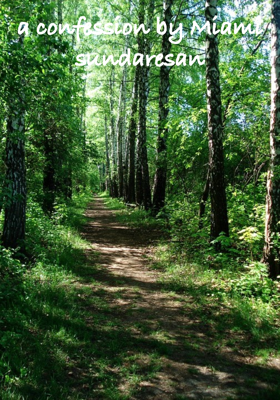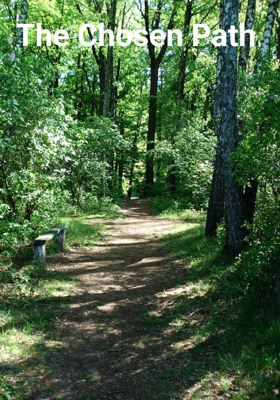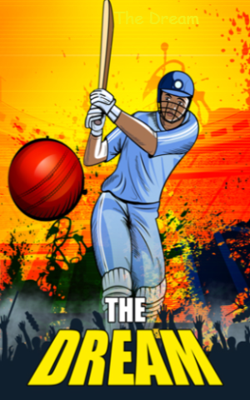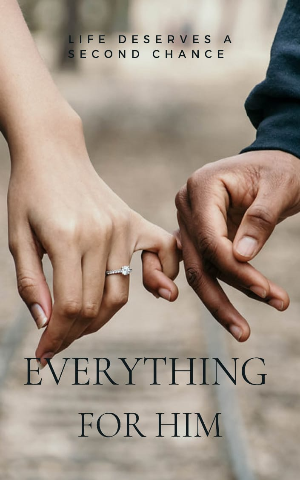The Eternal Circle of Memory...
The Eternal Circle of Memory...


The Eternal Circle of Memory...
The sun was setting over Chennai, casting a soft orange glow on the Adyar River. Shilpa stood by the riverside, watching the bustling urban landscape mix with ancient tradition as families gathered for Pitru Paksha. Despite the backdrop of modernity—the rumble of traffic and the distant hum of construction—the air felt charged with something timeless, a connection to the past.
Shilpa, a doctoral student in evolutionary psychology, adjusted her glasses and looked at her phone. She had texted her professor, Dr. Vivek Sukumaran, earlier that day about the ritual she was about to perform. The response had just come through: "How are you feeling about today, Shilpa?"
She hesitated before typing back: "Conflicted, sir. I’m here to offer Shraddha for my father, but I can’t shake off the skepticism. Why do we offer food to our ancestors? Does this really mean anything?"
Dr. Sukumaran, her mentor and guide through the complexities of evolutionary psychology, responded promptly: "Let’s talk. Call me when you can."
Shilpa stepped away from her family, who were preparing the offerings near the riverbank. The sounds of the city faded slightly as she walked towards a quieter spot by the banyan trees, the faint scent of incense blending with the salty breeze from the Bay of Bengal. She dialed her professor’s number.
“Hello, Shilpa,” Dr. Sukumaran’s familiar, calm voice came through.
“Hello sir, I’ve been thinking a lot about this ritual... I’m about to offer Shraddha for my father, but I can’t help questioning the point of it all. Why do these old rituals still persist? What do they really do?”
There was a brief pause before Dr. Sukumaran answered, his tone thoughtful. “It’s natural to question these things, Shilpa. And as a scientist, especially one studying evolutionary psychology, skepticism is healthy. But I think you’ll find there’s more to these rituals than just tradition. What do you believe this ritual represents?”
Shilpa gazed at the river as the light shifted, casting shimmering reflections on the water. “It’s supposed to be about honoring the dead, but I can’t help feeling like it’s just symbolic. I’m not sure what the evolutionary or psychological basis for something like this could be.”
Dr. Sukumaran chuckled gently. “Let’s look at it through the lens of evolutionary psychology. Rituals like Shraddha might seem like simple acts, but they have deeper roots in our species' development. Humans, as you know, are social creatures. Rituals help us maintain social cohesion, especially within families. This isn’t just a spiritual practice; it’s a tool for survival that has evolved over millennia.”
Shilpa leaned against the trunk of the banyan tree, intrigued. “So you’re saying it’s about group cohesion?”
“Exactly,” he replied. “In evolutionary terms, kin selection is crucial. By keeping family ties strong, we increase our chances of survival. Honoring ancestors strengthens those ties, and ensures that each generation recognizes its place within a larger familial network. The Shraddha ritual reinforces the importance of family, loyalty, and reciprocity. Even if the specific beliefs vary, the function remains: it binds us to one another.”
Shilpa nodded, even though he couldn’t see her. “But we don’t live in tribal societies anymore. Does it still hold the same relevance?”
“In today’s context, the survival aspect might not be as literal, but the psychological benefits are still profound,” Dr. Sukumaran explained. “Think of it this way: these rituals are part of our cultural evolution. They’re a way of transmitting values, history, and emotional connections from one generation to the next. Pitru Paksha, in particular, isn’t just about remembering the dead—it’s about sustaining the continuity of family identity and community.”
Shilpa watched as her mother and uncles arranged the offerings, placing rice, flowers, and water on a banana leaf. The rhythmic chanting of the priest mingled with the distant honking of cars, a juxtaposition of the old and the new.
“That makes sense,” she said slowly. “But I’ve always thought of evolution in terms of biological traits, not cultural practices. How does this fit into the broader idea of evolution?”
“You’re right,” Dr. Sukumaran said. “Biological evolution is only part of the story. Human beings are unique because we also evolve socially and culturally. Rituals like Shraddha help transmit not just genetic material, but also knowledge, values, and emotional connections. They create a sense of continuity. When you participate in this ritual, you’re not just engaging in a tradition—you’re playing a role in the preservation and transmission of cultural memory.”
Shilpa felt a flicker of understanding. “So, rituals are a way of ensuring that family legacies—both genetic and cultural—are passed down?”
“Exactly,” he confirmed. “And think about grief. Rituals provide structure, helping people process loss. They offer a framework for coping with something as complex as death. In evolutionary terms, this kind of emotional regulation is critical. It helps individuals function within the group despite the pain of losing a loved one.”
The city hummed around her, but Shilpa’s focus was now entirely on the conversation. The warmth of the late Chennai evening wrapped around her like a blanket as the words of the priest grew louder in the background.
“And there’s more,” Dr. Sukumaran continued. “Rituals create shared experiences. They remind us that we’re part of something larger than ourselves—part of a community, a family, a lineage. In evolutionary psychology, we call this ‘inclusive fitness’—the idea that helping your kin also helps you, even if not directly. That’s what Shraddha does. It fosters connection across generations.”
Shilpa stood silently for a moment, the layers of meaning settling over her like the dusky evening. She glanced back at her family, her mother now lighting the lamp for her father’s soul, the flickering flame casting long shadows in the dimming light.
“I hadn’t thought of it that way,” Shilpa admitted, her voice softer now. “I’ve been so focused on the symbolic aspect of it all that I didn’t see the deeper psychological and evolutionary role these rituals play.”
“That’s why this is important,” Dr. Sukumaran said gently. “You’re at the crossroads of science and tradition. And as a scientist, you can acknowledge that rituals like these serve an evolutionary purpose, even if you’re not religious. They help bind us together as families, as communities, and as humans.”
Shilpa took a deep breath, the cool breeze from the river carrying the scent of jasmine and camphor toward her. She felt something shift inside her—perhaps a quiet acknowledgment that this ritual wasn’t just for her father, but for her too, for her family, and for the generations that would follow.
“Thank you sir,” she said after a pause. “I think I understand now. This isn’t just about the past—it’s about preserving the present and shaping the future.”
Dr. Sukumaran’s voice held a smile. “You’ve got it, Shilpa. The past, present, and future are all interconnected. And through this, you’ll carry forward your father’s legacy, and the strength of your family will live on.”
Shilpa hung up and walked back toward her family, where the ritual continued, now with a newfound sense of peace. The flames of the lamp flickered brightly against the backdrop of the city's skyline, a symbol of continuity amidst the ever-changing world.
As she knelt beside her mother and offered the rice and water to her father’s memory, Shilpa realized that she was participating in something far greater than she had ever imagined—a timeless circle of love, memory, and connection, passed down through the generations.































































